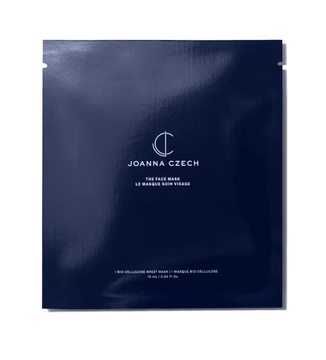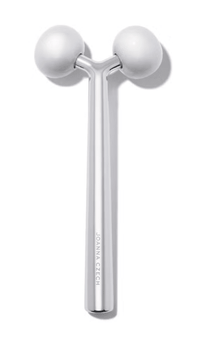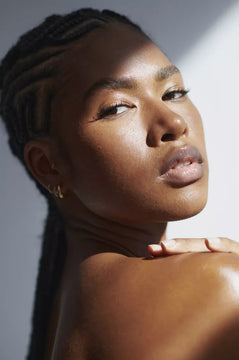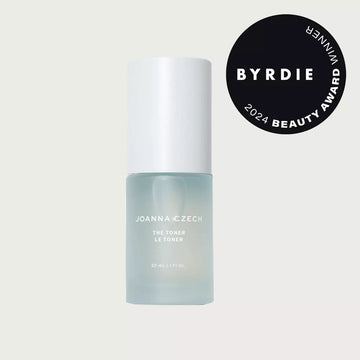Does Your Face Really Need a Workout?
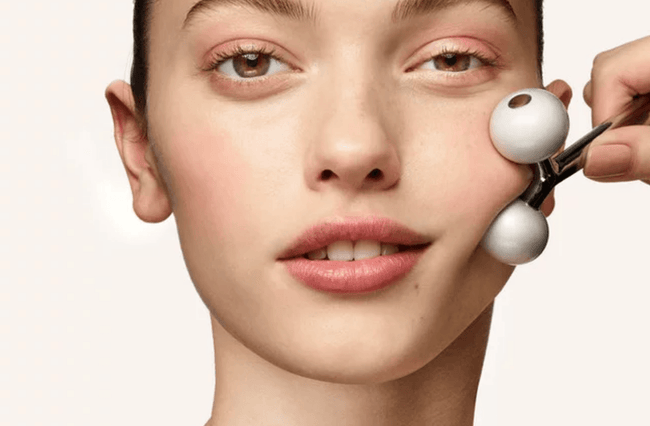
By Angelique Serrano
Recently the phrase “hitting the gym” has taken on new meaning. Since London’s popular FaceGym opened last year in the States with not one but two Manhattan locations, the studios, which offer “personal training” for your face, have generated waiting lists and rabid industry buzz. Their trained aestheticians use a combination of centuries-old massage techniques to work out the kinks, kneading your jaw and speedily tapping your cheekbones until your skin glows and your eyes water. Radio-frequency and microcurrent tools further stimulate muscles for a more lifted appearance.
And the results have people talking. One beauty editor said the “amazing” experience alleviated tension stemming from her TMJ. But another editor was left frazzled, finding the treatment too aggressive and jarring.
In today’s vast beauty landscape, where facial acupuncture and Eastern massage practices like gua sha have permeated the zeitgeist, jade rollers have become as common to a skin-care routine as dumbbells are to an arm workout. But should we be just as concerned with massaging and toning our buccinators as we are our biceps and triceps?
“I’m not opposed to facial massage because, scientifically, it’s leading to more lymphatic drainage, moving fluid around so it’s not pooling,” says N.Y.C. dermatologist Shereene Idriss. (This practice is different from “exercising” your face by making exaggerated expressions in front of a mirror, which could actually lead to sagging, she says.) Massage is a cornerstone of the FaceGym philosophy. Inge Theron, the brand’s founder, spent years as a columnist testing cutting-edge treatments, until she found herself as a 30-something woman suffering physically and emotionally from botched cosmetic procedures.
“My face was all messed up,” Theron says. “I started FaceGym because I was looking swollen, puffy, and older than ever before.” She saw a spiritual healer in Mexico. And she did some serious self-reflection. “Why, when I looked in the mirror, did I see all this negativity? I had that change emotionally and started accepting and loving myself a bit more.” Daily massages helped bring her face back to equilibrium. “When I saw the power of something as simple as this muscle manipulation over a period of time, the results were so profound.”
Knowing other women might be having similar struggles, she began to plan her brand. “What we do in the studio is personal training; it’s not facial exercise,” Theron says of the program, which includes a warm-up “where we knuckle in and get a grip on what’s going on,” followed by “cardio,” aka lymphatic drainage, to move the toxins and de-puff. A visitor can experience muscle sculpting and stimulation with energy-emitting devices. And FaceGym’s Skin IV tubes deliver ingredients like oxygen and vitamin C via pressurized air. “If you think about massage, [its benefits are] proven. Lymphatic drainage? Proven. Electric muscle stimulation? Proven. And they’re all part of our protocol,” Theron says.
Aesthetician Joanna Czech, who was trained in Poland and has decades of glow-boosting experience, says she strongly believes in massage. “But there are so many facial tools these days; some are more effective, others less.” Her Facial Massager ($189; joannaczech.com) allows you to cradle muscles from two sides to facilitate shaping, as opposed to flattening. But even if you’re using a stone roller like a Zamboni across your face, Czech is hopeful you’re at least prompting some blood circulation. “Hemoglobin carries more oxygen into the tissue, which means skin gets brighter.”
Though these routines may not be necessary, we can all agree: A relaxed face is typically a happier, smoother-looking one. That’s what you’ll likely leave with after visiting Wthn, a Manhattan acupuncture and wellness studio. Acupuncture is a natural anti-inflammatory, says Shari Auth, doctor of acupuncture and Chinese medicine. “It’s going to lower the levels of cortisol, which is your stress hormone, and increase the levels of serotonin and dopamine, which are your happy hormones. It also increases circulation locally, so it’s great for muscle tension.”
This doesn’t necessarily mean everyone should rush to get tiny needles pinned along their hairline. As with most beauty practices, says Dr. Idriss, it’s best to use a little common sense. If acupuncture makes you feel uncomfortable, maybe it’s not for you. If a technician is applying so much pressure it makes you want to cry, speak up; communication is essential. “You also need to analyze the skin. If there’s active acne or [moderate to severe] rosacea, it’s probably not a good moment to exercise those muscles,” says Czech. But if, at the end of the day, a cool jade stone rolling over your forehead feeds good, by all means, roll away.
